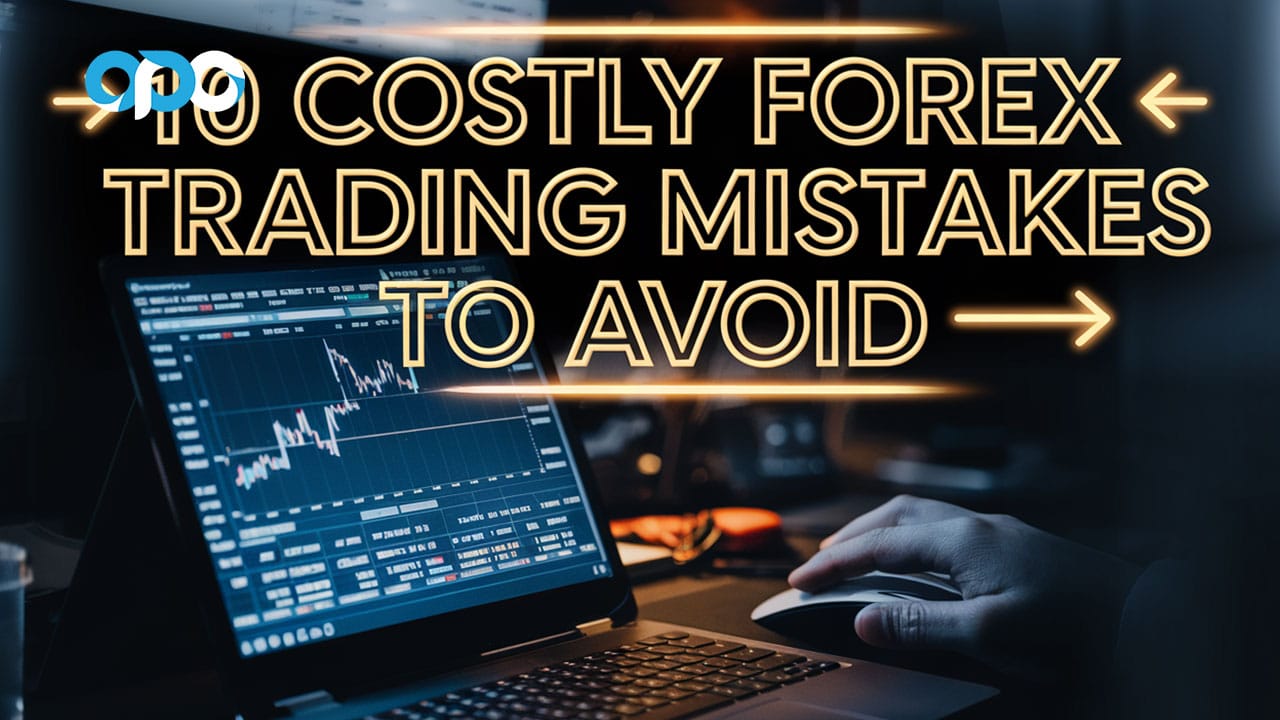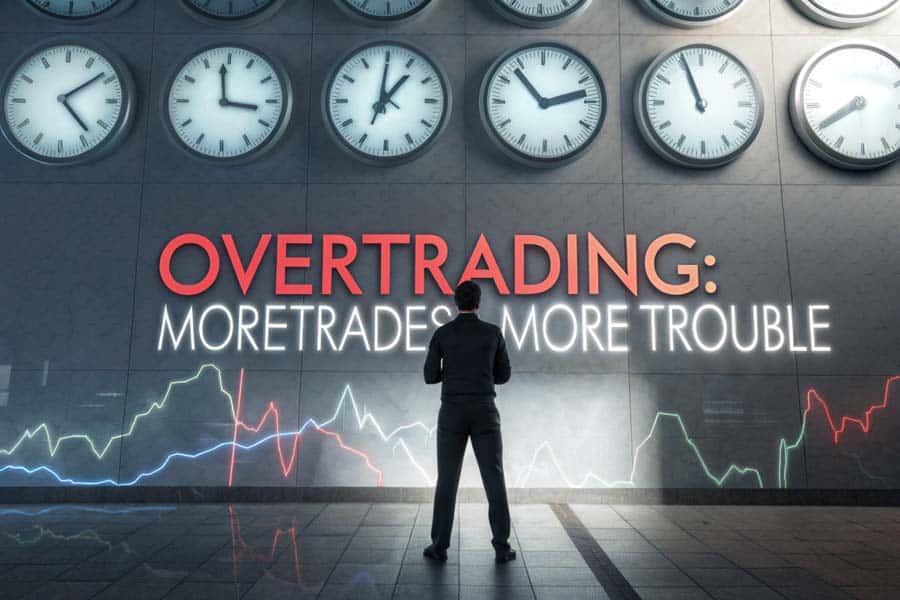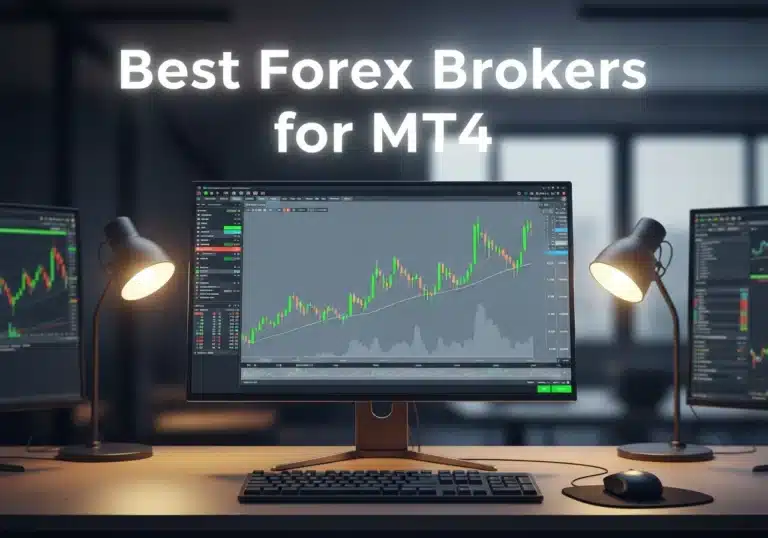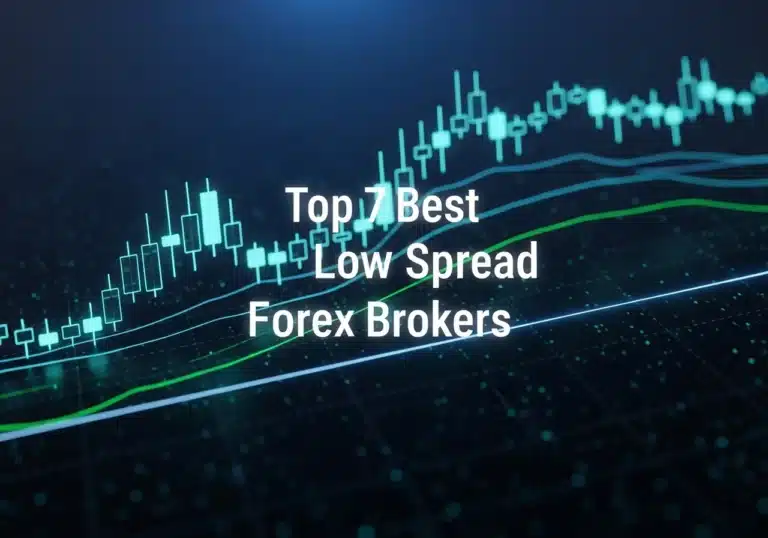Unlock your trading potential by steering clear of these common forex trading mistakes.

Imagine standing on the precipice of a vast financial ocean, the forex market stretching endlessly before you. The allure of substantial profits and the thrill of trading attract millions to this dynamic arena. Yet, beneath the surface lies a treacherous landscape filled with common forex trading mistakes that can quickly turn promising ventures into costly setbacks. Are you prepared to navigate these pitfalls and secure your path to trading success?
Forex trading has skyrocketed in popularity, driven by the promise of high returns and the accessibility of online platforms. However, the journey from novice to profitable trader is fraught with challenges. Understanding and avoiding common forex trading mistakes is not just beneficial—it’s essential for achieving long-term success. This comprehensive guide delves deep into the ten most prevalent forex trading errors, providing you with actionable insights and strategies to enhance your trading performance. Whether you’re partnering with a regulated forex broker or exploring options with a forex trading broker, recognizing these forex trading pitfalls will empower you to make informed decisions and elevate your trading game.
In this article, we will explore the top ten common mistakes made by forex traders, backed by relevant statistics and expert advice. By the end, you’ll be equipped with the knowledge to sidestep these errors, implement effective trading strategies, and foster disciplined trading habits. Let’s embark on this journey to transform your trading approach and maximize your potential in the forex market.
1. Lack of a Trading Plan: A Common Forex Trading Mistake

Without a plan, you’re trading in chaos. Secure your roadmap to success.
Without a plan, you’re planning to fail.
One of the most fundamental common forex trading mistakes is trading without a well-defined plan. A trading plan serves as your roadmap, outlining your strategies, risk tolerance, and financial goals. Without it, you’re left to navigate the volatile forex market blindly, increasing the likelihood of impulsive decisions and significant losses.
Consequences of Trading Without a Plan
Trading without a structured plan can lead to inconsistent results and heightened emotional involvement. Without predefined rules, traders may succumb to fear and greed, resulting in overtrading or abandoning positions prematurely. This lack of discipline often translates to erratic performance, making it challenging to achieve sustained profitability.
Steps to Develop an Effective Trading Strategy
- Define Your Goals: Clearly outline what you aim to achieve, whether it’s income generation, capital preservation, or long-term growth.
- Set Risk Parameters: Determine the maximum amount you’re willing to risk per trade and overall.
- Choose a Trading Style: Decide whether you’ll adopt a day trading, swing trading, or long-term investment approach.
- Backtest Your Strategy: Assess the viability of your plan by testing it against historical data.
- Document Everything: Maintain a trading journal to record trades, strategies, and performance for continuous improvement.
Pro Tip: Regularly review and adjust your trading plan to adapt to changing market conditions.
Read More: Forex Trading Discipline
2. Insufficient Market Research
Entering the market blindfolded is a recipe for disaster.
Another prevalent forex trading error is inadequate market research. Thorough analysis is crucial for making informed trading decisions. Failing to conduct proper research can result in misinterpreting market trends, overlooking economic indicators, and making trades based on unfounded assumptions.
Risks Associated with Inadequate Research
- Misinterpreting Market Signals: Without comprehensive analysis, traders may misread price movements and trend directions.
- Ignoring Economic Indicators: Overlooking key data such as interest rates, employment figures, and GDP growth can lead to misguided trades.
- Poor Decision-Making: Lack of research increases the likelihood of making impulsive and poorly informed trading choices.
Tools and Resources for Effective Market Analysis
- Economic Calendars: Track upcoming economic events and announcements that can impact currency values.
- Technical Analysis Software: Utilize advanced charting tools to identify patterns and trends.
- Financial News Platforms: Stay updated with global financial news that influences the forex market.
- Analytical Reports: Access detailed market analysis and forecasts from reputable financial institutions.
Pro Tip: Combine both technical and fundamental analysis for a comprehensive market view.
3. Overtrading
More trades don’t always mean more profits.
Overtrading is a significant forex trading pitfall where traders execute an excessive number of trades, often without strategic justification. This behavior can deplete capital quickly and lead to burnout, undermining overall trading performance.

Overtrading leads to burnout—focus on quality, not quantity.
Dangers of Excessive Trading
- Increased Transaction Costs: Frequent trading incurs higher commissions and spreads, eating into profits.
- Higher Risk Exposure: Taking on too many positions simultaneously increases exposure to market volatility.
- Emotional Exhaustion: Constant trading can lead to stress and impaired decision-making, further exacerbating trading errors.
Strategies to Prevent Overtrading
- Set Trading Limits: Establish a maximum number of trades per day or week to maintain discipline.
- Stick to Your Plan: Only execute trades that meet your predefined criteria and strategies.
- Take Breaks: Step away from the trading screen to clear your mind and prevent impulsive decisions.
- Focus on Quality Setups: Prioritize high-probability trades over sheer quantity to enhance profitability.
Pro Tip: Quality over quantity—focus on high-probability setups rather than frequent trades.
4. Ignoring Risk Management
Protect your capital—it’s your lifeline in trading.
Effective risk management is a cornerstone of successful forex trading. Ignoring it is a common mistake made by forex traders that can lead to devastating losses, jeopardizing your trading account.
Common Risk Management Mistakes
- Not Using Stop-Loss Orders: Failing to set stop-losses leaves trades vulnerable to significant losses in adverse market movements.
- Overleveraging: Taking on positions too large relative to your account size magnifies potential losses.
- Ignoring Position Sizing: Neglecting to adjust trade sizes based on risk tolerance and account balance increases exposure to risk.
Implementing Stop-Loss Orders and Position Sizing
- Set Stop-Loss Orders: Define a maximum loss level for each trade to limit potential losses.
- Calculate Position Sizes: Use position sizing formulas to determine appropriate trade sizes based on your risk tolerance.
- Diversify Your Trades: Spread your risk across different currency pairs to mitigate the impact of adverse movements in any single pair.
Pro Tip: Never risk more than 1-2% of your capital on a single trade.
Read More: How to deal with trading losses
5. Emotional Trading
Emotions are your worst enemy in the forex market.
Emotional trading occurs when decisions are driven by feelings rather than logic and analysis. Emotions such as fear and greed are powerful forces that can lead to forex trading errors, undermining disciplined trading practices.

Keep your emotions in check to master forex trading decisions.
Common Emotional Pitfalls
- Fear: Can cause traders to exit trades prematurely or miss out on profitable opportunities.
- Greed: May lead to holding onto losing positions longer than necessary or overtrading in pursuit of higher profits.
- Frustration: Resulting from a series of losses, leading to impulsive and irrational trading decisions.
Techniques to Maintain Emotional Discipline
- Follow Your Trading Plan: Let your plan guide your decisions, not your emotions.
- Mindfulness Practices: Engage in activities that promote mental clarity and reduce stress, such as meditation or exercise.
- Set Realistic Expectations: Accept that losses are part of trading and focus on long-term consistency.
- Maintain a Trading Journal: Document your trades and emotional states to identify and address emotional triggers.
Pro Tip: Keep a trading journal to reflect on emotional triggers and improve discipline.
6. Misunderstanding Leverage
Leverage is a double-edged sword—use it wisely.
Leverage allows traders to control large positions with a relatively small amount of capital. While it can amplify profits, misunderstanding leverage is a common forex trading mistake that can equally magnify losses, potentially wiping out your trading account.
Potential Risks of High Leverage
- Amplified Losses: High leverage increases the potential for significant losses, especially in volatile markets.
- Margin Calls: Failure to maintain adequate margin levels can result in automatic closure of positions by the broker.
- Increased Stress: Managing leveraged positions can be psychologically taxing, leading to impaired decision-making.
Guidelines for Using Leverage Responsibly
- Understand Leverage Ratios: Familiarize yourself with different leverage levels and their implications on your trades.
- Use Lower Leverage: Start with minimal leverage until you’re comfortable managing leveraged positions.
- Monitor Positions Closely: Keep a close eye on leveraged trades to manage risks effectively.
- Implement Risk Management Strategies: Use stop-loss orders and proper position sizing to mitigate the risks associated with leverage.
Pro Tip: Use leverage to enhance returns, not to take excessive risks.
7. Neglecting Fundamental Analysis
Ignoring the big picture can lead to costly mistakes.
While technical analysis focuses on price action and chart patterns, fundamental analysis considers economic indicators and news events that influence currency values. Neglecting fundamental analysis is a common forex trading mistake that can lead to incomplete market assessments and misguided trading decisions.

Fundamental analysis helps you see the big picture in the forex market.
Importance of Considering Economic Indicators
Economic data such as interest rates, employment figures, and GDP growth significantly impact currency values. For instance, an unexpected increase in interest rates can strengthen a currency, while poor employment data may weaken it. Understanding these indicators provides valuable insights into potential market movements.
Integrating Fundamental Analysis into Trading Strategies
- Stay Informed: Regularly follow economic calendars and news releases to anticipate market-moving events.
- Understand Market Sentiment: Gauge how news and economic data influence trader behavior and market sentiment.
- Combine Analyses: Use both technical and fundamental insights to make well-rounded trading decisions.
- Analyze Long-Term Trends: Incorporate fundamental factors to understand broader market trends beyond short-term price movements.
Pro Tip: Anticipate market reactions to news, not just the news itself.
Read More: Why do some forex traders fail?
8. Failing to Adapt to Market Conditions
The forex market is ever-changing—adapt or perish.
The forex market is highly dynamic, influenced by a multitude of factors including economic data, geopolitical events, and market sentiment. Failing to adapt to these changing conditions is a significant forex trading error that can render your trading strategies ineffective.
Risks of Sticking Rigidly to One Strategy
Market conditions can shift rapidly, rendering previously successful strategies obsolete. Sticking rigidly to a single approach without considering current market dynamics can lead to missed opportunities and increased losses.
Adapting Strategies to Changing Market Environments
- Regularly Review Strategies: Continuously assess the performance of your trading strategies and make necessary adjustments.
- Stay Educated: Keep up with market trends, new trading techniques, and emerging technologies.
- Be Flexible: Be willing to modify or abandon strategies that are no longer effective in the current market context.
- Diversify Your Approaches: Implement multiple strategies to navigate different market conditions effectively.
Pro Tip: Embrace change and view adaptability as a strength, not a weakness.
9. Overconfidence After Success
Success can breed complacency—stay vigilant.
Experiencing a series of profitable trades can lead to overconfidence, a common mistake made by forex traders that can result in reckless behaviors and significant losses. Overconfidence can cloud judgment, leading traders to take excessive risks or deviate from their trading plans.

Stay grounded—overconfidence after success can lead to reckless mistakes.
Maintaining Humility and Continuous Learning
Recognize that the forex market is unpredictable, and past success does not guarantee future results. Maintaining humility and a commitment to continuous learning helps traders stay grounded and adaptable.
Avoiding Reckless Trading Behaviors Post-Success
- Stick to Your Plan: Continue following your trading plan diligently, regardless of recent successes.
- Manage Risk: Avoid increasing risk levels arbitrarily after winning trades.
- Reflect on Successes: Analyze why trades were successful to replicate effective strategies without overstepping.
- Set New Goals: Establish new, realistic goals to stay motivated and focused.
Pro Tip: Treat each trade independently, regardless of past outcomes.
10. Lack of Continuous Education
In forex trading, learning never stops.
The forex market is constantly evolving, with new technologies, strategies, and market dynamics emerging regularly. A lack of continuous education is a common forex trading mistake that can leave traders ill-prepared for new challenges and opportunities.
Resources for Staying Updated
- Online Courses and Webinars: Enroll in courses and attend webinars to expand your knowledge on advanced trading topics.
- Trading Communities and Forums: Engage with other traders to share insights, strategies, and experiences.
- Financial News Outlets: Regularly follow reputable financial news sources to stay informed about global economic developments.
- Books and Publications: Read books and publications by experienced traders and analysts to deepen your understanding.
Benefits of Ongoing Learning
Continuous education helps you adapt to market changes, discover new strategies, and refine existing ones. It fosters a growth mindset, enabling you to stay competitive and enhance your trading performance over time.
Pro Tip: Allocate time each week to learn something new about forex trading.
Pro Tips for Advanced Traders
For those who have mastered the basics and are looking to refine their trading strategies, here are some advanced tips to further enhance your forex trading success:
- Diversify Your Portfolio: Avoid relying solely on a single currency pair. Diversifying across multiple pairs can reduce risk and increase potential opportunities.
- Implement Advanced Risk Management: Utilize hedging strategies to protect your positions against adverse market movements.
- Leverage Technology: Incorporate algorithmic trading and expert advisors to optimize trade execution and enhance efficiency.
- Analyze Market Correlations: Understand how different currency pairs interact and affect each other to make more informed trading decisions.
- Stay Ahead with Economic Indicators: Develop a deep understanding of leading, lagging, and coincident economic indicators to anticipate market trends accurately.
Elevate your trading strategy by integrating these advanced techniques and staying ahead of the curve.
Opofinance: Your Trusted Forex Trading Partner
Looking for a reliable and advanced trading platform? Opofinance, an ASIC-regulated broker, offers exceptional services tailored for both novice and experienced traders. Partnering with a regulated forex broker like Opofinance ensures a secure and efficient trading experience.

- Featured on the MT5 Brokers List: Access the powerful MetaTrader 5 platform for advanced trading capabilities, including enhanced charting tools and automated trading features.
- Social Trading Service: Benefit from Opofinance’s social trading service by following and copying successful traders, allowing you to learn and earn simultaneously.
- Safe and Convenient Deposits and Withdrawals: Enjoy secure and hassle-free transactions with multiple deposit and withdrawal methods, ensuring your funds are always accessible.
Take the Next Step: Join Opofinance today and elevate your forex trading experience with top-tier services and a supportive trading community.
Conclusion
Avoiding these common forex trading mistakes is essential for achieving long-term success in the forex market. By being aware of these pitfalls and taking proactive measures, you can enhance your trading performance and build a sustainable strategy. Remember, the key to success lies in continuous learning, disciplined execution, and adapting to ever-changing market conditions. Equip yourself with the knowledge to navigate the forex landscape confidently, and transform your trading journey into a profitable and rewarding endeavor.
Key Takeaways
- Develop a Trading Plan: A structured plan guides your trading decisions and fosters discipline.
- Conduct Thorough Market Research: Informed decisions reduce risks and increase profitability.
- Manage Risk Effectively: Protect your capital with proper risk management strategies.
- Control Emotions: Emotional discipline leads to better trading outcomes and sustained success.
- Understand Leverage: Use leverage responsibly to enhance returns without taking excessive risks.
- Stay Educated: Continuous learning is vital in the dynamic forex market to stay competitive and adapt to changes.
How can I create a realistic trading plan?
Creating a realistic trading plan involves setting achievable goals, defining your risk tolerance, selecting appropriate trading strategies, and establishing clear rules for entering and exiting trades. Start by assessing your financial situation, experience level, and time commitment. Incorporate both short-term and long-term objectives, and ensure your plan includes risk management techniques such as stop-loss orders and position sizing. Regularly review and adjust your plan based on your trading performance and changing market conditions.
What role does psychology play in forex trading success?
Psychology plays a critical role in forex trading success. Emotional factors such as fear, greed, and overconfidence can significantly impact decision-making and trading performance. Developing emotional discipline helps traders stick to their trading plans, manage stress, and avoid impulsive actions. Understanding and controlling your psychological responses can lead to more consistent and rational trading behavior, ultimately enhancing your chances of long-term profitability.
How important is it to follow economic news in forex trading?
Following economic news is highly important in forex trading as it provides insights into factors that can influence currency movements. Economic indicators like interest rates, employment data, and GDP figures can create significant volatility in the forex market. By staying informed about these developments, traders can anticipate market reactions, make informed trading decisions, and adjust their strategies accordingly. Ignoring economic news can lead to missed opportunities and increased exposure to unforeseen market shifts.







